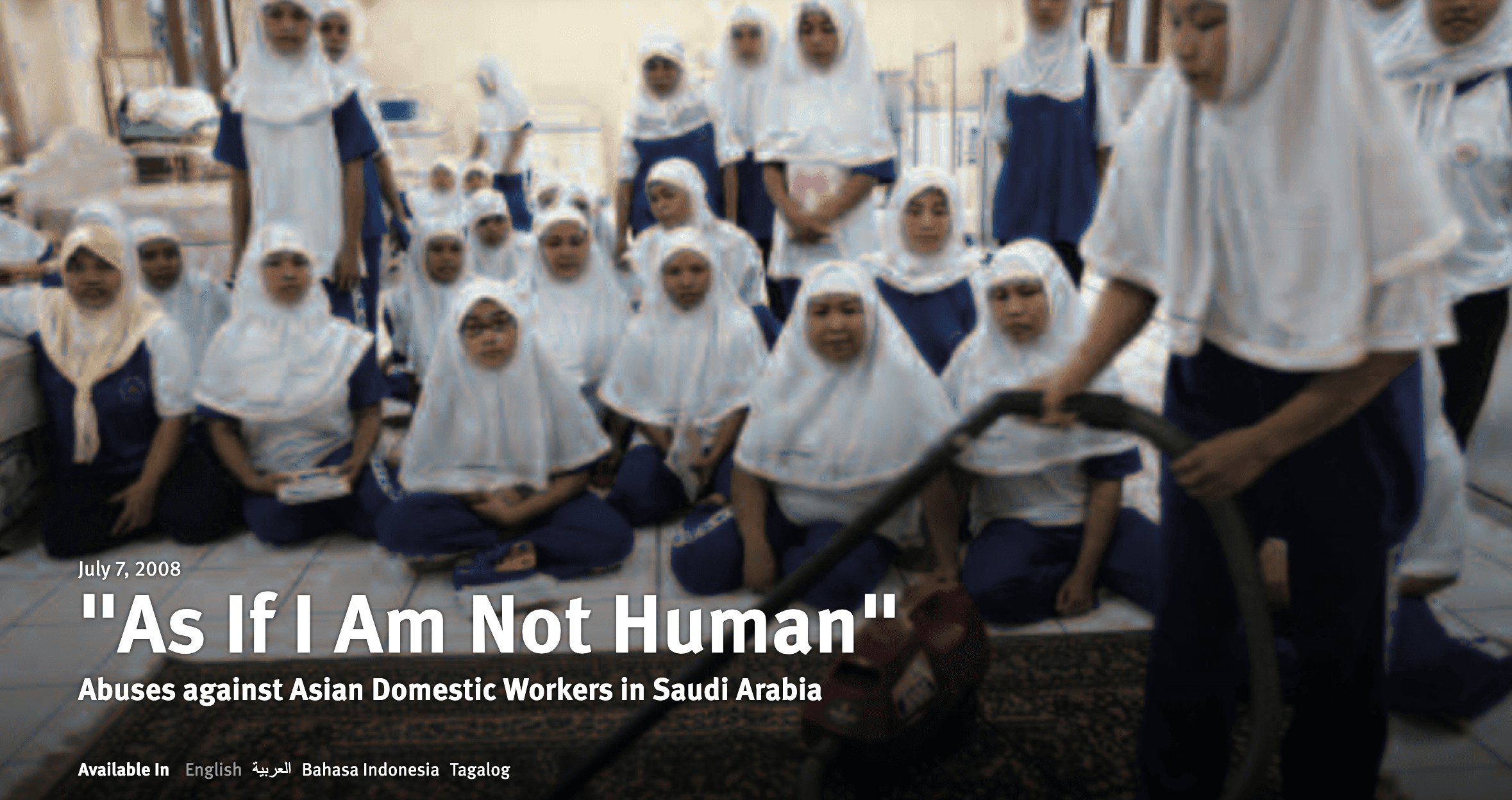
“As If I Am Not Human” Abuses against Asian Domestic Workers in Saudi Arabia
Migration offers both opportunity and risk. Perhaps nowhere is this more apparent than in the tremendous flows of contract labor between Asia and the Middle East. On the positive side, workers send home billions of dollars in remittances, which in the best cases help to pull their families out of poverty, fund the building of homes, finance education, and pay for medical care while contributing to the economy of their host country. In the worst cases, workers lose their lives, or are subject to forced labor and trafficking. Most migrants’ experiences fall somewhere in between.
Approximately 1.5 million women domestic workers, primarily from Indonesia, Sri Lanka, and the Philippines, work in Saudi Arabia. These workers, viewed at home as “modern-day heroes” for the foreign exchange they earn, receive less protection in Saudi Arabia than other categories of workers, exposing them to egregious abuses with little or no hope of redress. Domestic workers comprise less than a quarter of the eight million foreign workers in Saudi Arabia, but embassies from the labor-sending countries report that abuses against domestic workers account for the vast majority of the complaints they receive.
While many domestic workers enjoy decent work conditions, others endure a range of abuses including non-payment of salaries, forced confinement, food deprivation, excessive workload, and instances of severe psychological, physical, and sexual abuse. Human Rights Watch documented dozens of cases where the combination of these conditions amounted to forced labor, trafficking, or slavery-like conditions.
Saudi labor and social affairs officials interviewed by Human Rights Watch acknowledged the problem of domestic worker abuse, but emphasized that the majority of domestic workers in the country are treated well. No data exists to calculate accurately the number of women migrant domestic workers who confront violations of labor rights and other human rights. However, gaps in the labor code and restrictive immigration practices heighten domestic workers’ risk of abuse. Overall practices of strict sex segregation and discrimination against women in Saudi Arabia also contribute to domestic workers’ isolation. Those who experience abuse have little hope of full redress.
Read more here.
